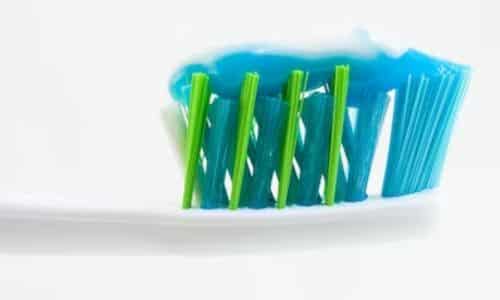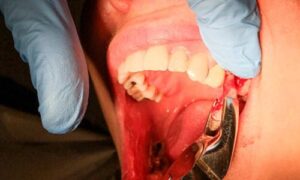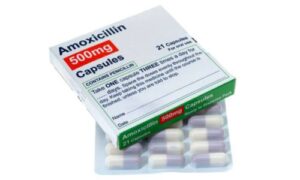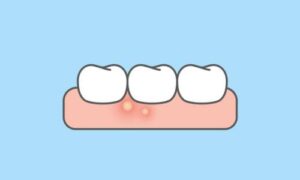Introduction:
A bright and healthy smile starts with the proper oral care routine, and toothpaste plays a pivotal role in maintaining strong teeth and gums. In this article, we’ll delve into the key ingredients that are beneficial for teeth health and help you make informed choices for your oral hygiene. Toothpaste is not just a means to freshen breath; it also helps remove plaque and prevent tooth decay. Understanding the ingredients in toothpaste can help you select the most effective product for your specific dental needs. Also, choosing a fluoride toothpaste can protect against cavities and strengthen Enamel.
1. Fluoride: The Defender Against Cavities
Fluoride is the superstar of toothpaste ingredients. It’s renowned for preventing tooth decay and cavities by strengthening tooth enamel. Fluoride works by remineralizing the Enamel, making it more resistant to acid attacks from bacteria and sugars in the mouth. This ingredient is essential for individuals prone to cavities or having a higher risk of tooth decay. Look for toothpaste endorsed by dental associations like the ADA (American Dental Association), as it ensures adequate fluoride for effective protection.
2. Silica: Gentle Abrasives for Stain Removal
Silica, a mild abrasive, is an excellent ingredient for teeth health. It helps remove surface stains and plaque buildup without causing damage to the Enamel. Additionally, silica particles in toothpaste contribute to a smoother and cleaner feeling after brushing. It helps remove surface stains from your teeth, leaving them looking brighter and more polished without causing any harm to the Enamel. Silica’s gentle action is perfect for maintaining the aesthetics of your smile.
3. Xylitol: Natural Sweetness for a Healthy Mouth
Xylitol is a natural sweetener found in some toothpaste brands. It adds a pleasant taste and actively combats harmful bacteria in your mouth. Xylitol has been shown to reduce the risk of tooth decay by inhibiting the growth of cavity-causing bacteria. Its natural sweetness makes brushing more enjoyable, while its antibacterial properties promote a healthier oral environment. By reducing bacterial growth, xylitol helps prevent cavities and promotes oral health.
4. Calcium Carbonate: Rebuilding and Strengthening Enamel
Calcium carbonate is another beneficial ingredient for teeth health. It helps rebuild and strengthen Enamel, the protective outer layer of your teeth. This ingredient remineralizes the Enamel, making it more resistant to decay and erosion. Regular toothpaste containing calcium carbonate can help maintain strong and healthy teeth. It aids in remineralizing tooth enamel, helping repair minor damage, and strengthening teeth. Toothpaste containing calcium carbonate is excellent for maintaining strong and resilient Enamel.
5. Potassium Nitrate: Soothing Sensitivity
For those with sensitive teeth, toothpaste containing potassium nitrate can be a game-changer. Potassium nitrate works by desensitizing the nerves in the teeth, reducing sensitivity to hot and cold temperatures. This can significantly improve comfort while eating and drinking. Additionally, toothpaste with potassium nitrate helps to create a protective barrier on the teeth, preventing further damage and discomfort. It works by desensitizing nerve endings in the teeth and relieving pain caused by hot, cold, or sweet foods and beverages.
6. Baking Soda: Natural Cleaning Agent
Baking soda is a natural ingredient known for its cleaning properties. It can be used as a gentle abrasive to remove stains and plaque from the surface of the teeth. Additionally, baking soda can help neutralize acids in the mouth, reducing the risk of tooth decay and gum disease. Toothpaste with baking soda can effectively remove surface stains and neutralize acids in the mouth, contributing to fresher breath and a cleaner feeling.
7. Hydrogen Peroxide: Whitening Power
Hydrogen peroxide is often included in whitening toothpaste. It helps lighten tooth color by breaking down and removing stains. In addition to its stain-removing properties, hydrogen peroxide has antibacterial properties that can help reduce the risk of gum disease and bad breath. Its whitening power makes it a popular ingredient in toothpaste for those looking to achieve a brighter smile. While it can enhance the appearance of your teeth, consult with your dentist before using hydrogen peroxide-containing toothpaste to ensure it’s suitable for your dental needs.
8. Essential Oils: Natural Antiseptics
Specific toothpaste formulations include essential oils like tea tree, eucalyptus, or peppermint. These essential oils have natural antiseptic properties that can help kill mouth bacteria and reduce gum disease risk. Additionally, the refreshing scent of these oils can leave your breath smelling fresh throughout the day. These oils have natural antiseptic properties that help combat bacteria, keeping your mouth fresh and healthy.
FAQs About Toothpaste Ingredients
Q 1: Are natural toothpaste ingredients better for my teeth?
Natural toothpaste ingredients can be beneficial, but not all natural products are equally effective. Look for products that have undergone rigorous testing and carry the ADA Seal of Acceptance, ensuring their safety and efficacy.
Q 2: Can toothpaste with multiple beneficial ingredients be too abrasive?
When formulated correctly, toothpaste with multiple beneficial ingredients is not overly abrasive. Manufacturers carefully balance these ingredients to ensure optimal cleaning and protection without harming tooth enamel.
Q 3: Are there any harmful ingredients I should avoid in toothpaste?
Yes, some ingredients in toothpaste can be harmful, such as sodium lauryl sulfate (SLS), artificial sweeteners, and microbeads. These ingredients may cause irritation, contribute to antibiotic resistance, or harm the environment. It’s best to choose toothpaste that avoids these harmful additives.
Q 4: How does potassium nitrate help with tooth sensitivity?
Potassium nitrate is a crucial ingredient in toothpaste designed for sensitive teeth. It works by desensitizing nerve endings in your teeth and relieving discomfort caused by hot, cold, or sweet foods and drinks.
Q 5: What does fluoride do for my teeth?
Fluoride is the superstar ingredient in toothpaste, known for its remarkable ability to strengthen tooth enamel. It helps prevent cavities by making teeth more resistant to acid attacks from plaque and sugars. The American Dental Association (ADA) recommends using toothpaste with fluoride for adequate cavity protection.
Q 6: How does calcium carbonate benefit my teeth?
Calcium carbonate is a natural mineral that plays a crucial role in remineralizing tooth enamel. It helps repair minor enamel damage, making your teeth more robust and more resilient to decay.
Q 7: Is xylitol safe for my teeth?
Xylitol is a natural sweetener that not only adds a pleasant taste to toothpaste but also helps combat harmful bacteria in the mouth. It reduces the risk of cavities by inhibiting bacterial growth.
Q 8: Can silica harm my teeth?
Silica is a mild abrasive that aids in the removal of surface stains without causing damage to tooth enamel. It leaves your teeth looking whiter and cleaner.
Conclusion: Choosing the Right Toothpaste for Your Smile
Maintaining excellent dental health starts with choosing the right toothpaste. When shopping for toothpaste, prioritize those with fluoride, silica, xylitol, calcium carbonate, potassium nitrate, baking soda, hydrogen peroxide, and essential oils. These ingredients protect your teeth from decay, strengthen Enamel, combat stains, and promote a fresh and healthy smile. Always consult your dentist for personalized recommendations tailored to your unique dental needs, ensuring that your oral care routine supports long-lasting teeth health and a confident, beautiful smile.
More blogs to read:














